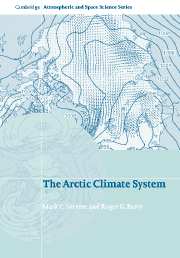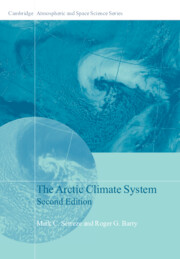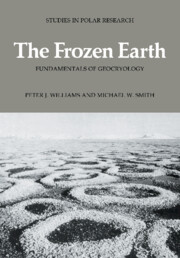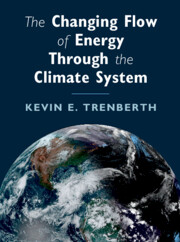The Arctic Climate System
The Arctic can be viewed as an integrated system, intimately linked by its atmosphere, ocean and land. This comprehensive, up-to-date assessment begins with an outline of early Arctic exploration and the growth of modern research. Using an integrated systems approach, subsequent chapters examine the atmospheric heat budget and circulation, the surface energy budget, the hydrologic cycle and interactions between the ocean, atmosphere and sea ice cover. Reviews of recent directions in numerical modeling and the characteristics of past Arctic climates cover recent climate variability as well as projected future trends.
- Equips reader with outline of early exploration and growth of modern research
- Contains results from the latest field programs providing the most modern insights into key Arctic processes
- Clear discussion of difficult concepts makes this book accessible to the non-specialist
Reviews & endorsements
Provides an extensive overview of the Arctic region and how it interacts with the global climate.
Choice
"A wealth of valuable information about the recent climate of the Artic is presented...This is one of the best books on the Arctic climate system and should be required reading for all scientists and students engaged in the study of the Arctic environment."
POLAR GEOGRAPHY
Product details
January 2006Hardback
9780521814188
402 pages
254 × 179 × 23 mm
0.989kg
164 b/w illus. 8 colour illus.
Replaced by 9780521116008
Table of Contents
- 1. The evolution of knowledge about the Arctic and its climate
- 2. Physical characteristics and basic climatic features
- 3. The basic atmospheric energy budget
- 4. The atmospheric circulation
- 5. The surface energy budget
- 6. Precipitation, net precipitation and river discharge
- 7. Arctic ocean-sea ice-climate interactions
- 8. Climate regimes of the Arctic
- 9. Modelling the Arctic climate system
- 10. Arctic paleoclimates
- 11. Recent climate variability, trends and the future.








